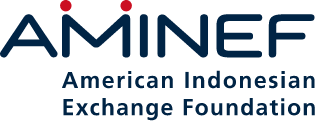My first Fulbright grant supported my dissertation research in the Togean Islands in the mid-1990s. I was studying the interactions between conservation biologists and people there in the creation of a Togean Island national park. I think like any foreigner, especially American, you have a lot to learn at first, and like any anthropology student you tend to be young. I had studied Indonesian, but in the Togean Islands I couldn’t speak any of the seven languages that people there actually used. After two months a friend from the United States came to visit and I quickly developed a sore throat from talking so much. I realized then that I hadn’t spoken to anybody for two months; I had just been silent, listening.
Another challenge was confronting the stereotypes around my research and around anthropology in general. There was the general perception that anthropologists study “primitive” people, and that the legitimate role for anthropology was helping economic development to work more smoothly.
To some extent, these perceptions have been true over most of the 20th century, yet many anthropologists see themselves today as contributing something different. We are interested in the distribution of difference, and the presence of inequalities, within the modern world, not in creating imagined divisions between the primitive and the modern, or the backward and the developed.
A lot has changed, both in anthropology and in Indonesia, and there’s more trust now, and dialogue. There’s also been a fundamental shift in the right of both Indonesians and foreign scholars to question and to have knowledge in and about Indonesia. I remember in 1993, a friend who was putting the finishing touches on his dissertation asked if I would stop by the flour mill in South Sulawesi and ask what year it opened. I went to the mill, but the year it opened was treated like a national security issue; they asked for an official letter granting permission to ask even this simple question. That’s something that has by and large changed. Right now I’m leading my first study abroad tour — it’s a collaboration between undergraduate students from the University of Washington and the University of Indonesia — and we’re able to do interviews about the REDD+ (Reducing Emissions from Deforestation and Forest Degradation) climate mitigation program. There’s a really different attitude today toward the right to ask questions, and this is benefiting Indonesian students as well as people like myself.
On my second Fulbright, more than a decade later, I taught in Yogyakarta. Based on that experience I’m writing the second major work of my career, a book on avian influenza.
The arch of my career has been tracking science in Indonesia, and so I’m interested in how Indonesians do science and what that tells us about how truth discourses are produced. We assume that science doesn’t have any cultural dimensions to it, right? But when you look at how science depends upon the questions you ask and how national traditions of science are different, that helps you to see that science is, in fact, part of culture rather than a lens that merely gets us closer to nature.
I am an Indonesianist today because of the opportunities I received through Fulbright; the program jumped in at two places in my career and allowed me to do some of my most important work. And today I can see the power of cultural exchange that programs like Fulbright create. In this collaboration between UI and UW students, for example, you can see how both sides take their own perspectives for granted. The U.S. students often have to learn that they’re not in a third world country where they have all the best answers for everything, and the Indonesian students probably also have to learn that every international engagement isn’t a neocolonial plot against Indonesia. Both sides have this thing they come to the table with that can be questioned. And that’s really the genius of Fulbright, isn’t it? Getting people on both sides to see that in fact what we’ve got is difference, but these differences don’t have to overcome our ability to work together.




